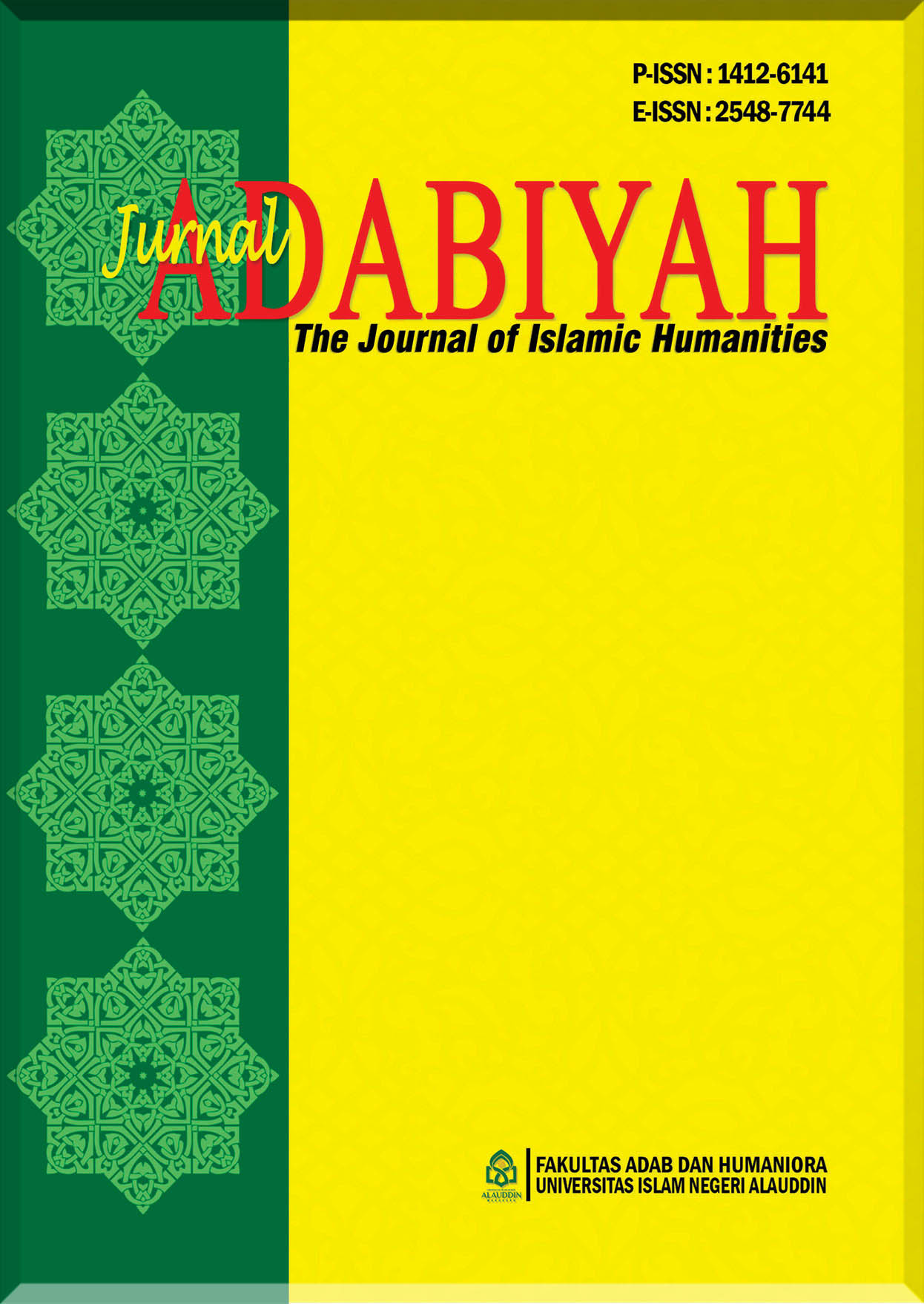Sayyid Amir Ali (Telaah terhadap Ide Pembaruan Islam)
Abstract
Although Ameer Ali's thinking was regarded as apologetic about Islam, he was indeed able to perform high defence towards Islam and show Islam as a rasional religion to the world. Ameer Ali explains that the retreat of Islamic people is due to thinks and the close up ijtihad's door. They obey what the nineth century ulama said, which is in fact not suitable to be applied in modern century. It is considered that Islamic people seem to be no longer value their mind, which is indeed very valuable from the persfective of islamic teaching. Therefore, Islamic people are encouraged to deepen their knowledge as much as possible. According to Ameer Ali, Islam is the religion which is in the front line to the improvement of scince and knowledge.Downloads
References
Departemen Agama. Al-Quran dun Terjemahannya. Saudi Arabiah: Mujarnma' al-Malik Fahd Li Thiba'at al- Mushaf, 1415.
Gibb, H.A.R. Modern Trend in Islam , diterjemahkan oleh macnun Husein dengan judul Aliran-aliran Modern dalam Islam (Cet. IV; Jakarta: Rajawali Press, 1993.
Jamelah, Maryam. Islam Modernisme, diterjemahkan oleh Ahmad Jainuri dan Syafiq A. Mughni dengan judul, Islam dan Modernisme. Surabaya: Usaha Nasional, t.th.
Nasution, Harun Nasution. Islam Ditinjau dari Berbagai Aspeknya, Jilid 11. Cet. VI; Jakarta: UI Press, 1986.
Downloads
Published
How to Cite
Issue
Section
License
COPYRIGHT AND LICENSE STATEMENT
COPYRIGHT
Jurnal Adabiyah is published under the terms of the Creative Commons Attribution license. Authors hold the copyright and retain publishing rights without restriction to their work. Users may read, download, copy, distribute, and print the work in any medium, provided the original work is properly cited.
LICENSE TO PUBLISH
1. License
The use of the article will be governed by the Creative Commons Attribution license as currently displayed on http://creativecommons.org/licenses/by/4.0.
2. Author’s Warranties
The author warrants that the article is original, written by stated author/s, has not been published before, contains no unlawful statements, does not infringe the rights of others, is subject to copyright that is vested exclusively in the author and free of any third party rights, and that any necessary written permissions to quote from other sources have been obtained by the author(s).
3. User Rights
Under the Creative Commons Attribution license, the users are free to download, reuse, reprint, modify, distribute and/or copy the content for any purpose, even commercially, as long as the original authors and source are cited. No permission is required from the authors or the publishers.
4. Co-Authorship
If the article was prepared jointly with other authors, the corresponding author warrants that he/she has been authorized by all co-authors, and agrees to inform his/her co-authors of the terms of this statement.
5. Miscellaneous
Jurnal Adabiyah may conform the article to a style of punctuation, spelling, capitalization, and usage that it deems appropriate. The author acknowledges that the article may be published so that it will be publicly accessible and such access will be free of charge for the readers.




